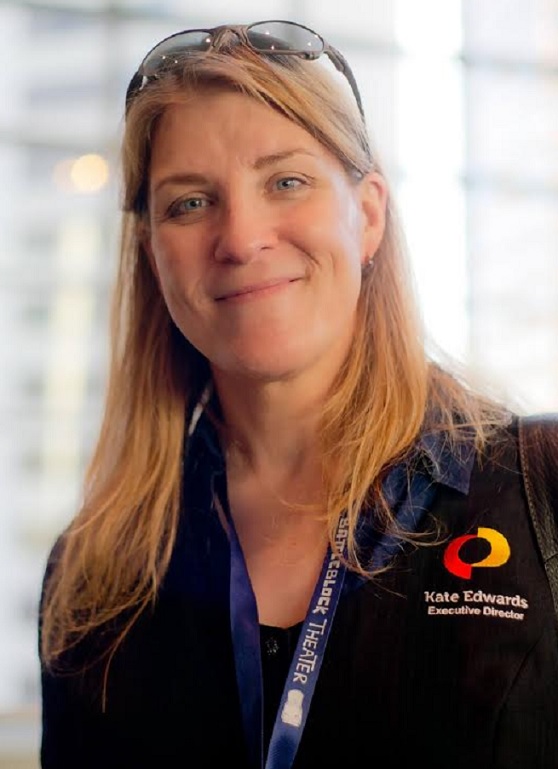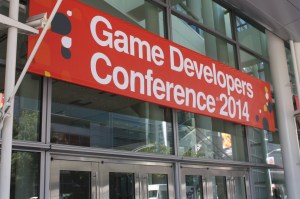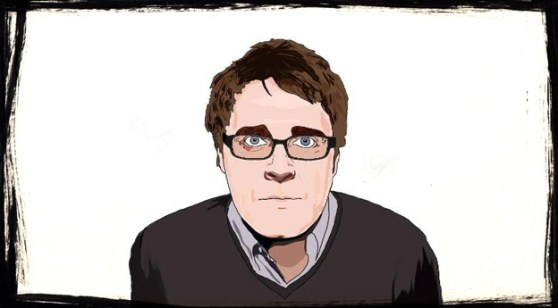Update 6:20 p.m. ET: A previous version of this story incorrectly defined the LGBT initialism. We deeply and sincerely regret this mistake and have corrected the story below.
SAN FRANCISCO — Players are obsessed with video games. But Kate Edwards has to pay attention to the people who make them. She is the executive director of the International Game Developers Association, the group dedicated to the health and well-being of game developers.
The IGDA is conducting a survey on quality of life for gamemakers, with questions about how they feel about working on games, diversity, and problems such as Internet haters who criticize and even threaten game developers. Edwards said the IGDA is doing the survey to get an honest look at the problems in the industry and come up with solutions.
We caught up with Edwards this week at the Game Developers Conference. We touched on everything from the ethical choices that the Flappy Bird developer made to concerns about whether gamers will be comfortable with gay heroes in games. Here’s an edited transcript of our interview.
GamesBeat: What are some big things on the agenda at GDC?
Kate Edwards: For us, one of the biggest things is launching our developer satisfaction survey today. It’s going to run through April 28, and then the plan is to release a high-level report by E3. In a couple of months, we’ll release pieces like specific analysis on quality of life issues, diversity, things like that. We want to gather information about who individual developers are and help us understand what are their priorities, what we need to focus on.
On Thursday, we’re doing advocacy training. Daniel Greenberg, who’s been one of our more vocal advocates on behalf of the org, is going to be doing that. We want more developers to be comfortable speaking up.
GamesBeat: Is there some data you’re looking for that GDC doesn’t collect right now? They do their own reports as well, right?
Edwards: I know GDC collects a lot of data. They don’t release it, which is part of the issue. We do plan to release our data and let people know about it. We’ll do that in certain chunks, at least, like I said.
The other issue, too, is that in addition to just collecting basic demographics, every five years we’ve done the quality of life survey – 2004, 2009, and now 2014. For this survey, we’re looping in a lot of our quality of life questions. We’re asking a lot of blunt questions – do you feel you’re paid fairly? Are you forced to work crunch time? All that stuff.
Then we’re also asking more general questions about this notion of satisfaction. That gets into a more perceptual, qualitative aspect, but that’s okay. We want to know how they feel, generally, about their jobs, and certain aspects. Do they perceive an issue with sexism in the industry? Do they perceive a need for more diversity in the industry? More questions along those lines, which to my knowledge we’re not getting. We hear a lot of anecdotal stuff, but we want something more concrete.
GamesBeat: GDC put a lot more of the advocacy talks front and center this year, following up on a lot of the most popular sessions from last year.
Edwards: Right. The IGDA was involved with the ones last year, and this year too. I’m on the advisory committee for the advocacy track. I’m pleased to see what we’ve come up with. I’m glad to see that GDC is emphasizing that.
GamesBeat: What would you say is included in advocacy now, as far as what’s open for discussion?
Edwards: A lot of things. Obviously the role of women in the industry is a big one. That’s the obvious one GDC has focused on. A lot of people have lately, as they should.
For international women’s day a couple of weeks ago, I gave a talk at Popcap in Seattle. I was focusing more on what I call “implicit inclusion.” It’s important to talk about the role of women in the industry, but it needs to be a broader discussion about diversity. It’s not just about gender. It’s about all kinds of diversity. But I think it’s good that that’s an obvious issue we need to address.
We’re not past the whole violence in video games issue at all. We still need to address that. Even though there are U.S.-based developers who think we’re fine because of the Supreme Court decision a couple of years ago, we still have an entire world that’s facing these issues. There are lots of other issues as well.
GamesBeat: There are talks focusing on racism, homophobia, lesbian-gay-bisexual-and-transgender issues. The Internet hate discussion and bullying, too.
Edwards: Exactly. To some degree, that last one has been around, but it’s getting more prevalent, whether or not it’s just people who are feeling braver through anonymity. I don’t know.
GamesBeat: In the past year, we’ve seen a lot of magnified incidents as far as bullying issues and the like. Did it surprise you to see that, or is it par for the course?
Edwards: I don’t think I’m totally surprised. Frankly, that’s part of the cost. When you’re a developer who puts yourself and your work out there, especially if you’re part of something like Kickstarter—If you’ve used any form of crowdfunding, you invite the people who are donating into the conversation. You may not think you’re doing that, but a lot of people who give to these campaigns believe that they’re part of the creative process. They’re not just giving you money. When that happens, there’s a different stake here. If you starting doing things they feel are contrary to what their money should support, they’re going to speak up.
On a very micro scale, it’s no different from an executive producer on a film saying, “No, take that line out.” They control the money. It’s just that when you have 10,000 people who want to be the executive producer, it’s going to get frustrating.
Edwards: Absolutely. You can get instant support that goes above and beyond your expectations, and instant demise. Even to the level of national governments, as we’ve seen in the last few years.
GamesBeat: Is there a good set of advice coming out of all of this?
Edwards: We’re looking at it. We’ve had discussions about what we need to do as an organization. Obviously we’re here to support developers who face that kind of threat. That’s part of what it means to be a community. They’re not isolated. They have people around them who can help.
We haven’t formalized that help at this point, because I think it’s still an issue that’s—We’re still trying to get a feel for the prevalence of this. Does it happen every day? Do people perceive it as happening at a high frequency, or is it isolated incidents that are really high-profile? I don’t think we have a good sense of that yet. Certainly the high-profile ones get attention, and so we know about them. We’ll see. We’re still looking into what we need to do as an organization, what we need to do as an industry to address it.
GamesBeat: In your day job, you’re counseling a lot of companies, right? Talking about what they need to watch out for.
Edwards: A lot of times that’s part of what we try to do as an organization, prescriptive advice. On this issue we haven’t formalized anything yet. We’re trying to do other things. We’ve drafted an inclusivity policy, which still has to go through our board at this point, but it’s something we’re hoping to release not too long after GDC. That’s focused on events, mainly, but we’re planning to broaden that as time goes on. We’re trying to explain to companies, or event companies, if you’re going to run an event for the game industry, this is how you can make it inclusive. It covers various things, like the type of parties that are held. When do you use promotional models? All that kind of thing.
 GamesBeat: There’s the workplace on the one hand, and also the marketing of games becoming an issue as well. On the marketing, I see a lot of clashes over the impressions that marketers have about what the audience wants. They may say that you can’t put a woman on the cover of this game, because it won’t sell. That happened with BioShock, I think?
GamesBeat: There’s the workplace on the one hand, and also the marketing of games becoming an issue as well. On the marketing, I see a lot of clashes over the impressions that marketers have about what the audience wants. They may say that you can’t put a woman on the cover of this game, because it won’t sell. That happened with BioShock, I think?
Edwards: Yeah, that’s right.
GamesBeat: Or we can’t have a gay character as the hero of this game, because it won’t sell. On those kinds of things, is there some kind of advice or understanding that people are coming to about what to do about that?
Edwards: Part of it is — in my perception, a lot of those kinds of statements from a marketing angle are just assumptions. I haven’t seen hard data supporting those assumptions. I would love to. If they have hard data to show, “Hey, we’ve done market research studies that show you must have this kind of character on the cover,” I’ve never heard that.
The marketing people I know are great people, but at the same time, I think a lot of times – at least in my perception, again – you just go with the assumption that, “This is what the demographic is. Therefore, for this type of game, we have to do it this way.” I don’t know if they really know for sure. Certainly I’m not going to tell them how to do their jobs, because I’m not a marketing expert, but if they have data that shows one way or the other, I’d love to see it. If we look at the data the ESA comes up with as far as who the typical gamer is, that would seem in some ways to contradict the marketing assumptions.
GamesBeat: On the workplace side, have you seen incidents on that side, or changes that have happened at companies over time?
Edwards: Certainly the larger companies – the Microsofts, Sonys — they have a better understanding that comes with maturity. They’ve been around long enough. They understand what it means to have an inclusive, diverse environment. How much they actually promote that internally is a question we can’t answer, because we don’t have their internal data.
I know that in my experience, when it comes to — all of these companies have a strong commitment to diversity. It’s something they promote internally. The question is, does it actually happen? I don’t know if we have that data.
There’s much greater awareness now than there was even five years ago, because the issue has been out there. It’s been talked about a great deal, both here at GDC and elsewhere. We’ve had all kinds of incidents that have come up, whether it’s harassment of women or other issues in the industry, that have highlighted the issue.
But what really matters, when it comes to increasing the workplace diversity and decreasing these kinds of incident — what’s happening at the hiring level? The hiring manager, what decisions are they making? I don’t know. I’m hoping that when it comes to that particular granular level — that’s where the decision gets made. Who are you hiring into this position and why? Is that hiring manager following the company promotion of diversity, or are they just going with the status quo because it’s easy?
GamesBeat: This whole Flappy Bird thing drew a lot of attention to different pieces of different issues. The developer was concerned about making a game that was too addictive. There seems to be an ethical choice that developers have to deal with there, how addictive to make their games. It never seemed like an issue in the past. It was a good thing to make your game addictive.
But then you have things like gambling games now. You make those too addictive and you’ll run into regulatory trouble.
Edwards: Exactly. Part of that, too, when I look at the Flappy Bird issue, you have something where it’s a single developer making a conscious ethical choice. That’s admirable on his part. Now, the question is, what if a much larger company made Flappy Bird? Would they have made the same ethical choice? They’re making a lot of revenue. Just because of the way large companies tend to work, they may not have felt they had the leeway to make that easy choice, to just say, “We’re not going to do this anymore.” It’s an interesting dynamic.
GamesBeat: Free-to-play seems to come with a bunch of issues on that front. Parents are becoming concerned about kids being able to buy too much stuff. Again, what are you designing the game for? Is it designed for fun, or is it designed to have people continuously put coins into it?
Edwards: To me, that’s part of what is interesting about our industry. That’s the developer’s perception of what is fun. To them, feeding coins might be fun. Not just from a revenue standpoint, but they might actually believe that’s part of the fun experience of the game, to be able to keep perpetuating that. In the Flappy Bird case, it’s interesting that that can come down to just a personal preference, or a personal moral choice they make.
GamesBeat: Are you on the watch with platform owners as well, whether they’re making the right decisions on behalf of developers? Whether they’re dealing with developers fairly or not. During the year there were a couple of incidents where who had the right to price an app in a store was something that came up — does the developer have the right to do that, or does the platform owner keep control?
Edwards: That’s becoming more of an issue. It’s one of many different things in the cloud of our industry that we’re keeping an eye on to see where it’s going. I’ve heard a lot of issues like that come up, where people have felt grievously put off by something that’s happened in that area.
Part of it, too, is a question of how much does an individual developer — what is their sensitivity level to it? Some of them might just say, “That’s the cost of getting myself into the industry and releasing my game.” Others, who might be a lot wiser, will say, “There’s no way in hell I’ll do that. It’s too much of a hit on me. It devalues my creation. I don’t want to participate in that model.”





